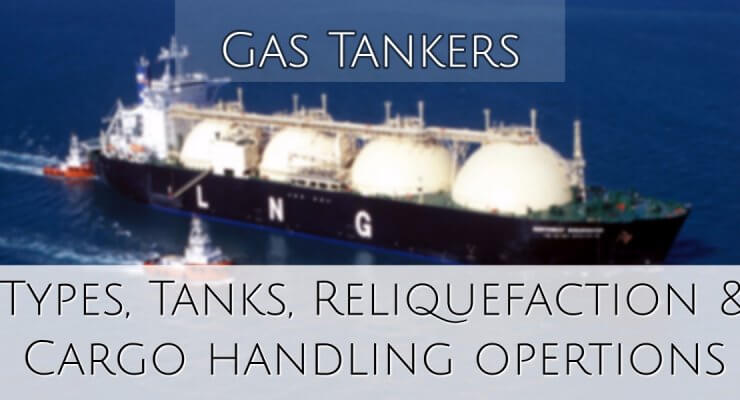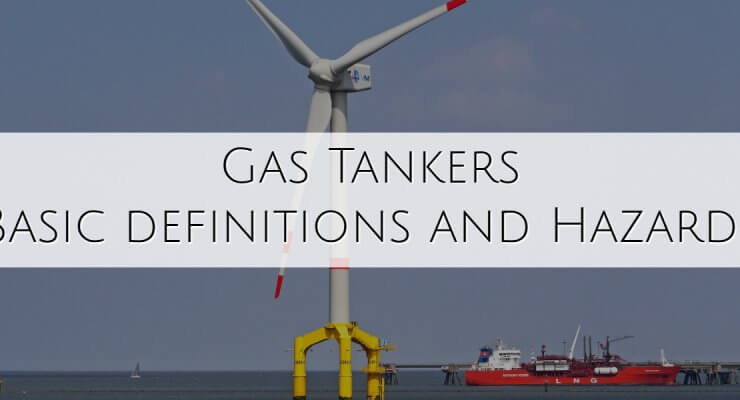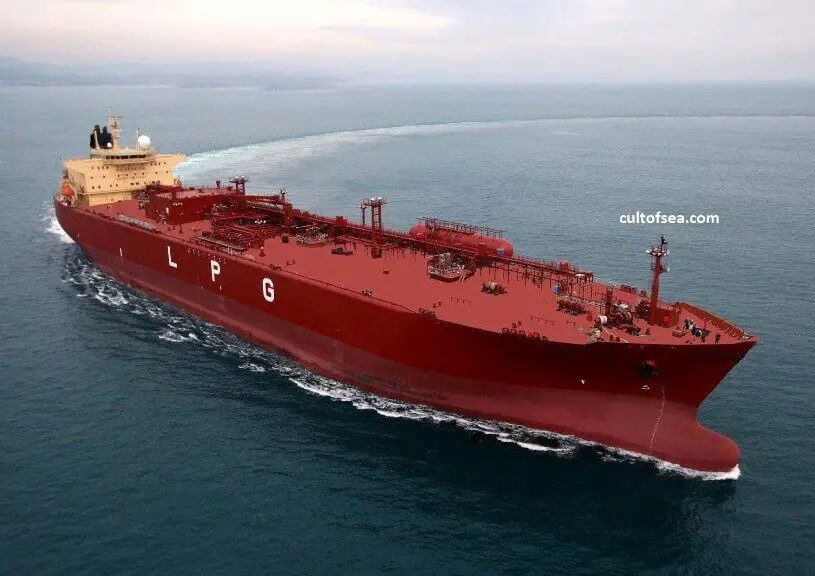Different Types of Gas Tanker Ships Gas carriers can be grouped into five different categories according to the cargo carried and the carriage condition. These are as follows:Fully pressurised ships Semi-pressurised ships Ethylene ships Fully refrigerated LPG ships LNG shipsThe first three ship types listed are most suitable for the shipment of smaller-size cargoes of LPG and chemical gases. This is normally accomplished on short-sea and regional routes. Fully refrigerated ships are used extensively for the carriage of large size cargoes of LPG and ammonia on the deep sea … [Read more...]
Gas Tanker Basics – Definitions and Hazards
Transportation of Liquefied Gases by Sea General For economical marine transportation, gas is carried in a liquefied state. As a liquid, the volume to weight ratio at atmospheric pressure is in the range of 650 times less than in the gaseous state. That means we can carry 650 times more cargo in the liquid state as compared to a carriage in the gaseous state.The temperature at which a gas condenses is a function of its pressure. The combination of pressurising and cooling is, therefore, fundamental to gas carrier design. Some ships carry gases liquefied under pressure & others under … [Read more...]
Cargo Conditioning, Reliquefaction – Gas Tankers
Purpose The term Cargo Conditioning refers to the "maintaining" during the passage of:Cargo quantity without undue losses. Cargo tank pressure/temp within design limits. maintaining or altering cargo temperature as required.This is achieved by reliquefaction. Cargo conditioning may not be necessary on ships with pressure vessel tanks, depending on filling limits.If reliquefaction plant is fitted the responsible personnel should have a thorough understanding of its operational principles. When running, the plant should be monitored so that anything affecting its safety or … [Read more...]


